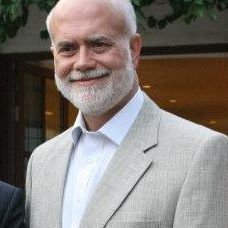It was popular in the 1990s. Money which was of less value was jocularly referred as “amafaranga” or Rwandan Francs (Rwanda’s currency). The underlying story of this tale is of how low Rwanda had sunk, economically, consequent to the genocide. Fuse this with the loss of human resource in the killings that cost the country more than 800,000 lives of its populace in just 100 days and the millions that were displaced. The result is a country that was clearly an embodiment of a lost cause. This was in the past.
Today, the land of a thousand hills has been on the receiving end of praises such as; “the Singapore of Africa”, “the model of African states”. Whereas this may come off as puffery, what is apparent is the achievements – given its past – accomplished by the government in Kigali.
A World Bank report, “Doing Business” ranked Rwanda as one of the top investment-friendly destinations in the world. For three straight years the country was ranked as the fastest growing economy in East Africa.
We talked to some Ugandans to explain the country’s ability to dust itself and rise again. Dr Frederick Golooba Mutebi, a political scientist, points at leadership in Kigali as the factor behind the various feats.
“The leaders that took over post-genocide Rwanda had a specific idea of what to do. They were clear about the direction they wanted the country to take. For example, they wanted to build a government where there was accountability for public funds,” he says, “They then set out to relentlessly achieve these goals.
What we see today are the fruits of their unwavering effort. Corruption is at a minimum. The little that is there is vigorously fought. Officials who steal public funds meant for development projects are locked up. This implies that government projects do not stall because money set aside for them has not been misappropriated.”
In the same vein, Golooba says, the leadership has an organised goal setting system. He explains that periodical effort is undertaken to evaluate progress in achievement of goals.
Fred Bahati, the Chairman of Uganda Bus Owners Association, who has ancestral roots in the country, says the root of the country’s development is in the ability of the citizenry to invest more of their effort in development than being obsessed with ethnicity.
“The mistakes of the past were a result of people being more concerned about the tribe to which one belonged than what could spur economic development. That has all changed. Today, Rwandans are development-focused. They are aware of the fall they suffered, so they work towards being the best and overtaking their counterparts in the region,” he says, adding; “It was also very important that people forgave each other and reconciled over what transpired in the past. Currently, there is a sense of patriotism in the country. The citizens identify themselves as Rwandans not as Hutu or Tutsi.
A Hutu smoothly works alongside a Tutsi in all aspects of life. This, to me, was a firm foundation for all the achievements we are seeing in the country today.”
Bahati further states that the leadership has showcased discipline, which has rubbed off on the citizens. He explains that since discipline is the bridge between goals and their achievement, it is unsurprising that Rwanda is thriving economic wise.
“When the government devises a development measure, it is implemented to the letter. Even the laws; when one is enacted, there is strict emphasis on its implementation. For example, when polythene bags were banned, there was no procrastination in implementing this. You will hardly find a polythene bag in Kigali today. So, such an atmosphere where citizens are shown what is good for them and they oblige is a suitable one for a country that aims to achieve development,” he says.
Golooba says the unique political system has also been paramount in steering the country ahead. He remarks that Rwanda is not a classic multiparty system where political parties spend most time arguing about everything and not agreeing on anything. He says all parties have a role in the government. “They identify the country’s priorities together, evaluate them constantly and find a way forward,” he adds.
Not all good
However, the reports from the land of a thousand hills have not all been rosy ones. On a number of occasions, the government has been criticised for silencing dissenting voices. It has been accused of being behind the deaths of a raft of opposition figures.
atumusiime@ug.nationmedia
This withstanding, what you cannot take from Rwanda is its ability to beat the odds and become an enviable state – economically.
SOURCE: monitor.co.ug








